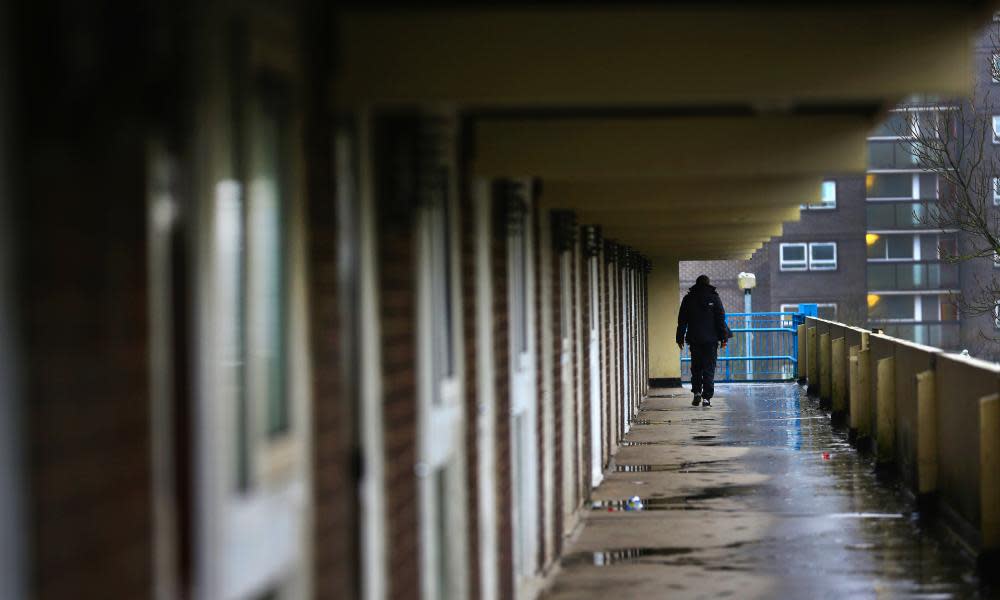Universal credit is a social policy disaster in the making | Priya Thethi

Universal credit is the biggest change to our welfare system in 40 years. By the time it has been fully rolled out in 2022 it will potentially affect 8 million people across the UK. The rollout so far has been controversial, and fraught with difficulties. Social housing organisations, in which only around 2.6% of tenants (pdf) are currently claiming universal credit, have been hit particularly hard by the speed and scale of the change.
In August 2017 the Department of Work and Pensions (DWP) released a guide for landlords, in a bid to to explain what the changes will mean and how they can support their tenants. Unfortunately, it made little to no mention of how to deal with the slew of administrative issues, faults and delays, which have already caused hardship for so many claimants.
We conducted in-depth interviews with 10 landlords, most of whom have experienced the full implementation of universal credit. What’s becoming clear is that, while the overall experience of working with the DWP has been good, there is a disconnect between the experience of the people who are implementing universal credit, and the perception of the guidelines, as agreed by its decision makers.
For example, advance payments, which are a way of shielding people from the worst hardship, are seen as a welcome and necessary interim measure. These loans are 50% of the full award and can be made to people experiencing delays in their universal credit claim. They are then paid back over time.
Whether people are told about this option is still all too dependent on who they speak to. When the relevant information does get through, claimants are regularly expected to repay the debt over just six months, which pushes them into poverty. If you received £540 a month in universal credit, including housing costs, that would mean losing £45, every month for the first six months. It’s a significant sum when you consider the majority of the award goes on the cost of housing. Plus some social landlords have told us tenants are consistently asked to repay over as little as two or three months – another indicator that a lack of understanding by DWP representatives is a serious issue.
Another misjudged decision is the implementation of a six-week wait between making a universal credit claim and receiving the first payment. The government wants to discourage people from abusing the welfare system by making short-term claims, and has, perhaps understandably introduced a waiting period as a disincentive. However, social landlords tell us that only a fifth of their tenants who claim universal credit have wages to fall back on during this time. That’s leading them to resort to borrowing, risking eviction and homelessness, and relying on foodbanks to feed themselves.
The DWP estimates that 80% of first payments are made within the intended five to six-week period. But when 570,000 people are currently claiming universal credit – a number expected to climb into the millions – that remaining 20% isn’t just a margin of error – it isn’t good enough. At some housing associations, members tell us 40% of their tenants claiming universal credit already need intensive support, mostly to deal with delays and mistakes.
So far, five to six Jobcentre areas have been implementing universal credit per month, but from late 2017, the number of new cases will increase at seven times the current rate. The time to make the necessary changes is now.
We are supportive of universal credit’s aims. It is right that people are rewarded for finding work, and it is right that the benefits system is simplified. But the rollout must now be slowed down so that theDWP can apply its “test and learn” approach to resolve the operational glitches that are causing such hardship. Crucially, it must provide a consistent, transparent service to claimants and their landlords who currently spend so much time, energy and money dealing with a system that’s supposed to be simpler than that which it’s replaced.
These problems need to be resolved, and soon. Otherwise we will see more people being pushed into poverty and put at risk of homelessness.
Priya Thethi is a policy and practice officer at the Chartered Institute of Housing
Sign up for your free Guardian Housing network newsletter with comment and sector views sent direct to you on the last Friday of the month. Follow us @GuardianHousing
Looking for a housing job, or need to recruit housing staff? Take a look at Guardian Jobs.

 Yahoo News
Yahoo News 
